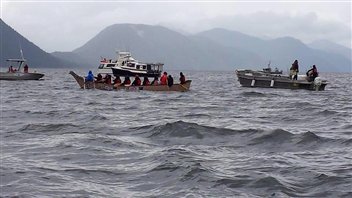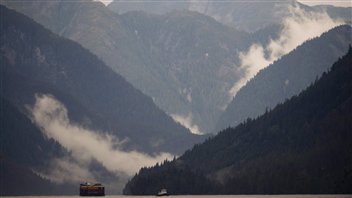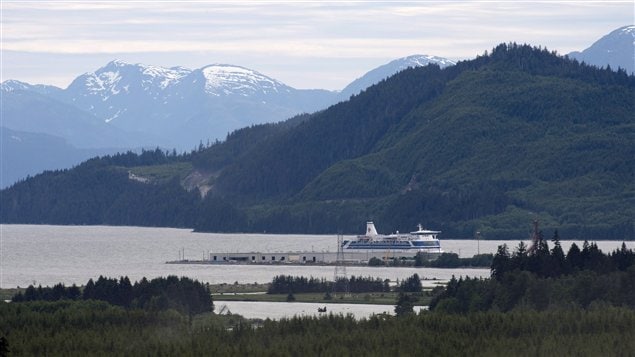The Supreme Court of Canada delivered an historic ruling on Thursday affecting aboriginal land rights that will have wide-ranging repercussions for Canada’s First Nations, resource companies and Canada’s economy.
The unanimous 8-0 decision will essentially make it easier for First Nations to establish title over a broad tracts of land that were regularly used for hunting, fishing and other activities.
It is the first time the Supreme Court has recognized aboriginal title to a specific piece of land.
Following the ruling, Stewart Phillip, president of the Union of BC Indian Chiefs, spoke to the media.
ListenThe case involved a claim to 1,750 square kilometres of land in central British Columbia. The Court ruled that aboriginal groups are entitled to prevent forestry in the area.

The decision adds conditions that would be expected to make it more difficult–though not impossible–for developments such as pipelines, mines and forestry to proceed without aboriginal consent.
There are no new pipelines being proposed to pass through the area involved in Thursday’s ruling. The controversial Northern Gateway pipeline route lies well to the north.
Thursday’s ruling came after what the T silqot’in Nation described as a 150-year fight to assert possession of 4,000 square kilometres west of Williams Lake, B.C.
Resource companies had warned that a decision in favour of the First Nation would create investor uncertainty.
The Supreme Court’s ruling and will apply wherever there are unresolved land claims.
However, the Court also ruled title is not absolute and economic development can still go ahead on land where title is established as long as one of two conditions is met.

Economic development on land where title is established would require the consent of the First Nation or, failing that, the government would have to make the case that development is pressing and substantial and it meets its fiduciary duty to the aboriginal group.
That essentially puts a greater burden on governments to justify economic development on aboriginal land.







For reasons beyond our control, and for an undetermined period of time, our comment section is now closed. However, our social networks remain open to your contributions.